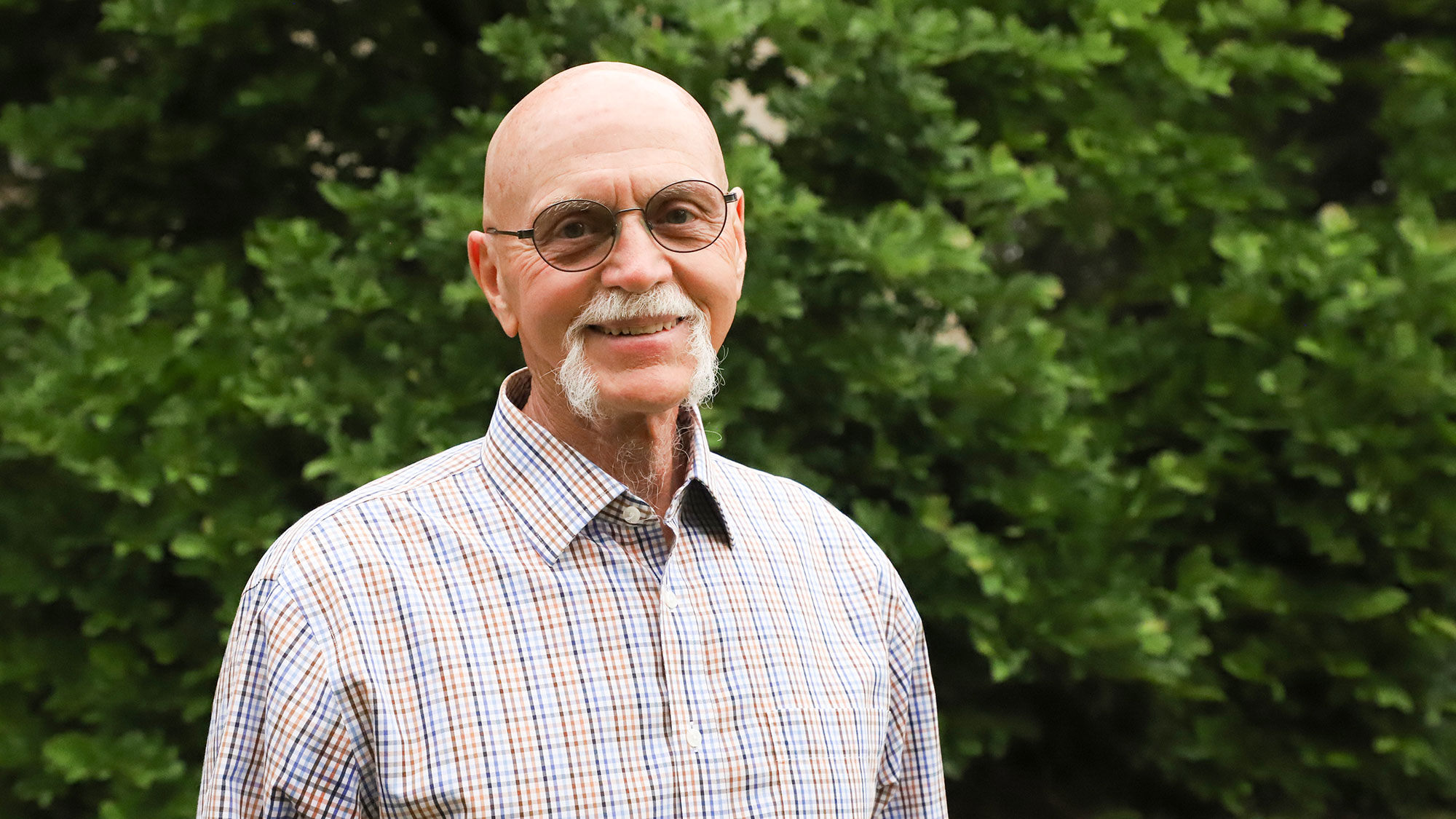
by Fran tenBensel Benne | Agronomy and Horticulture
Blaine Johnson returned to serve the Department of Agronomy and Horticulture, first as a lecturer in 2019 and as a professor of practice as of Aug. 15. Johnson has a 50% appointment with all his time dedicated to teaching.
Johnson started his career as a Department of Agronomy faculty member in the mid-1980s. He officially retired after 20 years of working in research and development for private seed companies, primarily as a plant breeder and an in-house statistical consultant. However, he came back to the university on a part-time basis when asked to help teach courses in plant breeding.
He said he thoroughly enjoys working with graduate students and helping update and improve courses and curricula, especially in plant breeding, genetics, and applied statistics.
“This position gives me a chance to pass on some of my experiences and career knowledge, hopefully helping students avoid some of the bumps in the road that I encountered throughout my career,” he said.
Johnson grew up on an irrigated farm/ranch in the northern Sandhills of Nebraska near his hometown of Ainsworth. After completing a Master of Science, he returned to the family farm, raising corn and black Angus cattle for several years before returning to school to complete a doctorate.
He earned a Bachelor of Science from the University of Nebraska–Lincoln in range management and ruminant nutrition, a master’s degree in plant breeding and statistics from Oregon State University, and a doctorate in quantitative genetics and biometry from Nebraska.
After 10 years at the university, he moved to a career in the private seed business, first working for Monsanto and then moving to Pioneer Hi-Bred International, working at several research centers in multiple states across the Midwest.
Then, in 2008, he was offered the opportunity to return to Nebraska as a corn breeder and station manager at Pioneer Hi-Bred International’s research center in York.
“This move let me return to my roots, so to speak, and make a direct contribution to agriculture in the state through the development of new hybrids adapted to Nebraska,” he said.
Upon retiring, Johnson embarked on studying jazz, emphasizing piano and organ. Johnson devotes time to honing his new craft when he’s not working. He said he always wanted to learn jazz formally but never had the time to devote to the effort before he retired.
“A couple of understanding and patient instructors have me doing things on the keyboard I never believed possible,” Johnson said. “I now use this as an example when mentoring early career scientists, trying to impress upon them that they’re always capable of doing much more than they believe possible.”
More details at: https://go.unl.edu/bwoa